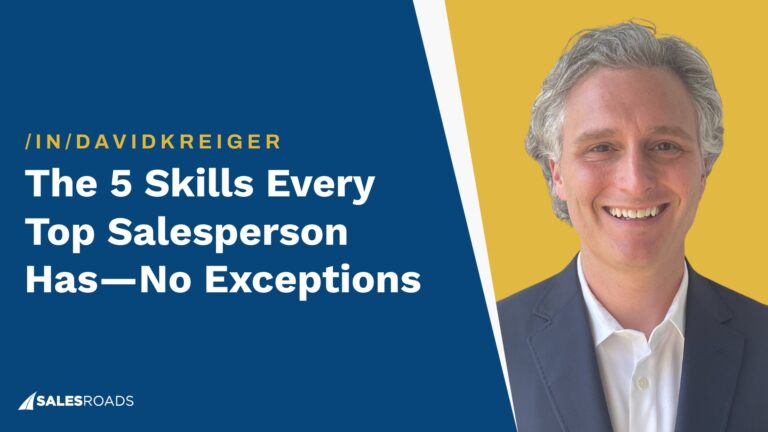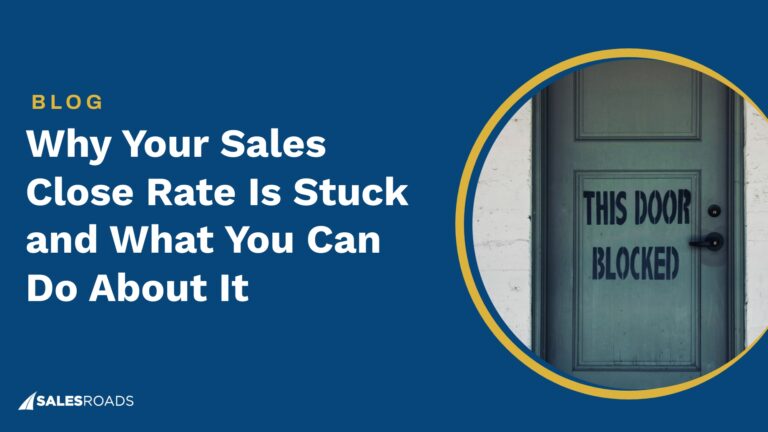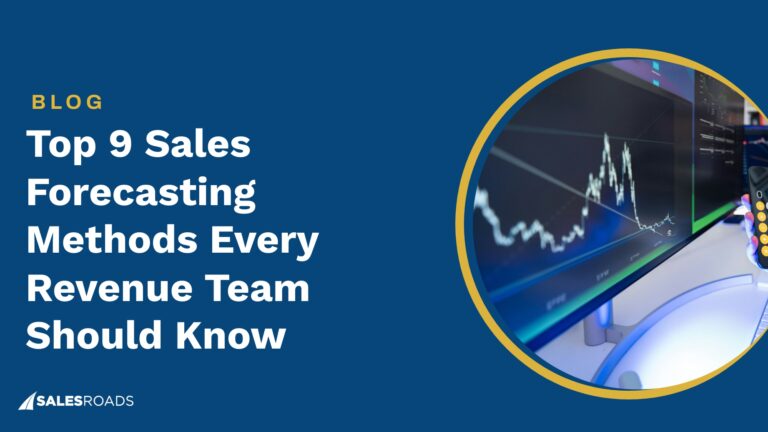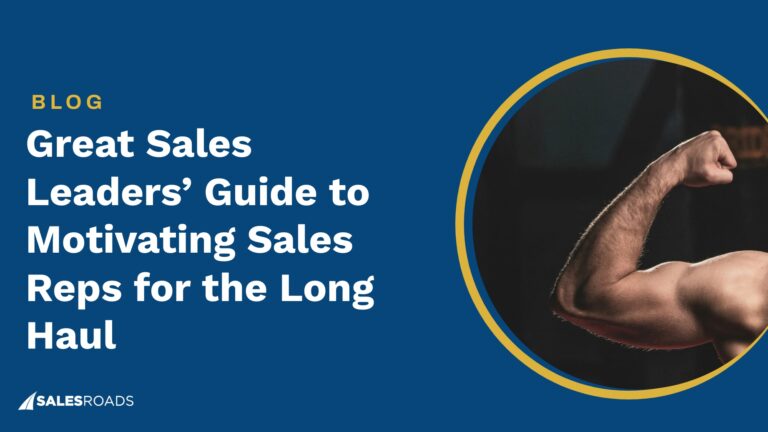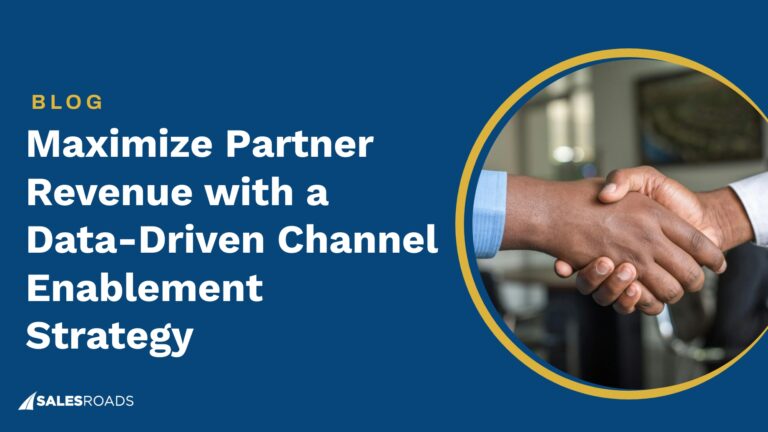Sell Like A Leader – Episode 25
In this episode, we dive into:
– Collaborating with competitors: Competitors becoming mentors and thought leaders for each other, the concept of “frienemies,” shared learning, building relationships, common challenges, mutual help, and overcoming hesitation.
– Rapid fire Q&A
About Valerie Schlitt
David Kreiger chats with Valerie Schlitt, the Founder of VSA Prospecting which she launched in 2001. She has recently sold VSA and entered a new life stage, managing the one customer service client she retained.
Podcast Key Takeaways
- Valerie emphasizes the importance of finding others who are receptive, willing to learn, and not overly protective of their knowledge or methodologies. She highlights the need for mutual respect and the confidence that both parties have valuable insights to offer.
- By sharing knowledge on industry challenges, such as technological changes or sales strategies, both entities can benefit immensely from these collaborations.
- For sales leaders looking to foster such relationships within their team or organization, Valerie suggests starting with referral partnerships. This builds trust and provides a platform from which collaborators can expand the scope of their discussions.
Connects
Connect with Valerie Schlitt: https://www.linkedin.com/in/valerieschlitt/
Connect with David Kreiger: https://www.linkedin.com/in/davidkreiger
Subscribe to the podcast and follow our Podcast LinkedIn page so you don’t miss any episodes!
Transcript
David: Welcome back to another episode of the Sell Like a Leader podcast, the podcast for revenue leaders who are on a mission to cultivate a high-performing sales team. I'm your host, David Kreiger, founder of SalesRoads, America's most trusted sales outsourcing and appointment setting firm. Today, I'm bringing you a really special revenue leader, Valerie Schlitt.
Valerie launched VSA, a lead generation agency, back in 2001 after 18 years of marketing, management, and consulting roles at American Express, PricewaterhouseCoopers, and KPMG. Recently, she sold VSA to SalesRoads, which is part of the excitement for this episode as she's entering a new life stage while managing a great customer service client that she is still working with [00:01:00] and really spending more time with a special person in her life—her first grandchild.
So Valerie, I am so excited to have you on the show here today.
Valerie: Hey, David, I'm thrilled to be here as well.
David: Yeah. So I, I really wanted to have you on because we feel so—first of all, I feel so lucky to have gotten to work with you over the past 17 years. As I built up SalesRoads, you've been a mentor to me. And we've gotten to a place where we have been able to bring our two great organizations together.
We've had lots of conversations, but I wanted to bring our conversations to the community today. So, you know, I wanted to start a little bit just with your sales team and how it looked at VSA, and what was your philosophy, or how you built a high-performance sales team within VSA.
Valerie: David, as you already know, because we've had so many conversations during your acquisition of our programs.
VSA relies on an infrastructure that has [00:02:00] both a program manager and a team of business development reps. We call them business development reps—BDRs. And the BDRs are the ones that are on the phone making the telephone calls. And I'll talk about them in a minute, but it really does a lot start with the program manager who really gets to know the client's needs inside and out.
And understands what their metrics are, what their goals are, what they're looking for, what the program is all about, what things can change, what things cannot change, and has accountability for achieving the results—the desired results. The BDRs are just one component of a program, as you obviously know, and they are the engine that just keeps on going, makes the calls.
No BDR was ever just on one program and no program only relied on one BDR. So they get a lot of experience across programs, which we thought allowed them to move on to new programs quickly.
The program manager, though, was responsible for measuring the results of each [00:03:00] BDR, comparing them against each other, and adjusting the team. If the team was not as a whole working well, either everyone got trained or someone got moved off. So we were always—it was very dynamic. And we motivated our BDRs by letting them know what we expected from them and what they needed to achieve to stay on certain programs.
And really for them, being able to work was the outcome—was the desired result. Let me just tell you for a moment, when we hired people, we didn't necessarily only look for people who had sales backgrounds. We looked for people who could engage with prospective clients very easily. And that might be someone from a call center background or sales background, but it could also be someone from customer service or from retail.
Someone who is very comfortable influencing others. We've had teachers influencing others. Basically it's a combination of overall great management of a program, assigning a qualified team who knows how to engage and motivating them, and [00:04:00] measuring results.
David: That's awesome. And one of the amazing things I found as it was, we went through the acquisition and merger, and merged our teams, is you just had some great people at VSA that stayed with you for long periods of time, really trusted you as a leader and really just overall had a great culture at VSA.
And I'm just curious if you could talk a little bit about the culture you have and built at VSA and what are some of the elements of that?
Valerie: So we actually identified core values—just four of them—that we had created for VSA, but we did that by looking at the culture that was already there. So we were really lucky somehow and innately inherently to have built a culture that was client-responsive and striving to do the very best for clients, but also being very responsible for each other.
One of our core values is to be motivational for our clients and for each other. And then to always create a very positive work [00:05:00] environment. And then we actually put them down on paper and hired against them and constantly looked for people who could fit into our culture and then reinforced during training, during our weekly newsletter to employees, in meetings, and everyone knew that we were collectively responsible for delivering results to clients, but also making this a wonderful and supportive place for our employees
to work.
Because without having a place where you want to come to work, no one is going to be motivated to actually strive for others. They're just going to be afraid. And we didn't want that. We wanted people feeling very positive.
David: Yeah, I think people produce their best work when they are motivated, not when they're scared.
And I think you did an amazing job of doing that within your team. So I wanted to talk a little bit about competitors working together, because that's something we've done over almost two decades, and I think it was very beneficial for us—hopefully it's been beneficial for you—over those two [00:06:00] decades.
And I think you've done that really well with a number of different companies. It's almost too harsh a word, but I think it's fun, you know, call them frenemies. But, you know, I'd love to get your philosophy on that, or just what are some signs that you've seen over the years that a competitor can become a good
frenemy—somebody where you can mutually help each other. So what are your thoughts on that?
Valerie: You are correct in that I had several different firms that I still am frenemies with. And you were obviously one of the key ones. I think that—I remember the very first person that this happened to—she's actually the person that got me into the business initially. She said, "There's plenty of business for all of us.
You should go ahead and do it, and we will share notes." And that is the green light that I had—that you can actually be friends with people that are in the same industry, and you don't have to be always watching out for your turf.
So I think one of the most important things is finding [00:07:00] others that are open-minded, that want to learn, that are not so proprietary and closed and defensive, and have more of a mentality that there's plenty to share, not that they have to be protective.
And you were that way from the very beginning. I think also people's personality plays a role—having the willingness to be open-minded and to listen to other people, but also having something to share back and to have the confidence that what I'm sharing is something that would be helpful for SalesRoads to learn, and vice versa.
And I think if I didn't feel that I was successful and forward-thinking and moving ahead in our industry, it would have been a lot harder to share with you, and you would not have wanted to share with me. So it's incumbent upon the person that I'm sharing with to be open-minded, but also for me as a leader to know that I have something worthwhile to share.
And there's so much—as our industry is getting more [00:08:00] complex by the day with all of the technology, different ways of managing people, different ways to actually communicate and cadences, and where you can get list sources. And those are all things that you and I talked about over the years together.
David: Yeah, I think that's so well said. And as you would try to chart those relationships, did you ever feel that anyone was a little hesitant, didn’t really have trust in opening up or talking? And listen, obviously there are things—you're not going to be completely open—but just not even to share basic things.
And if so, is there any way to overcome that or build that trust initially as you're getting to know some other companies?
Valerie: Definitely, because I definitely have reached out to other organizations who have not become frenemies with VSA or with me. I think one of the best ways to start is to become referral partners. I think it might be how we started—I don't know if that's how we started—but then you get to understand what kind [00:09:00] of business the frenemy is willing to accept and vice versa, and that becomes a trust.
And after that, I do believe that carving out a scope of what you're willing to share and what areas you're not willing to share—I have one frenemy who said, "I will share everything, but I'm not going to talk about how I get business." And so that was always off-limits. So the trust that we had is that we knew that we would talk about things that we felt comfortable sharing.
And then I think over periods of time that scope can expand. Everyone wants to know what else there is to learn. And it's interesting, David, in our industry—unlike almost any other—there is no association of agencies that do business development work. There's, of course, inside sales groups, there's marketing groups, there's lead gen groups, but they're not agencies that all come together, and we're all wanting to learn.
So to create environments where you're sharing with others [00:10:00] and even starting small and then expanding is really a way to grow and to learn.
David: Yeah, that's awesome. And so if you were talking to us, we have a lot of sales leaders who listen to the podcast, and I think you're right. There's some uniqueness to our industry, especially because there's not the trade organizations exactly and things like that.
But I think this principle can apply almost anywhere in SaaS companies, other companies. Is there anything that you would say to sales leaders that can help them as they're trying to make sure their team benefits from collaborating with competitors?
Valerie: So we all want to learn. There are so many books about leadership. There are so many books about sales. And we all know how important it is to stay abreast by reading books. But being able to collaborate in a dynamic way where there's one-on-one and give-and-take and challenges, and then someone coming—for example, if I'm talking [00:11:00] with you, you might do something different than I do.
That is really invaluable. And I don't know—if someone's too protective, that's going to be hard for someone to open up and listen. But in many ways, I think that dynamic conversation is even more fruitful and more practical than reading something from a book. It's similar to going to a conference and hearing someone make a presentation, but you're right there and you can actually ask probing questions.
When I talked with you and sales leaders, when they talk to others, really, it's a way to build up the business. There really is no downside, as far as I'm concerned, in being able to share best practices.
And I think that just taking information back to the teams and fueling each individual team with the new information is a great way to see progress and to see more results.
David: Yeah, I think people are too fearful of the negative ramifications and they [00:12:00] are shortsighted in how many positive things—because the learning you can get from somebody who is in a similar industry, who's solving for the same challenges and problems that you have—can just open up a world of learning. Because you're learning within your own organization, but there are certain ways you're doing it.
So if another company is doing things in a different way... The things that I've learned from you, from other companies in the industry, have put me forward years, because we've learned from things we've done well, things—mistakes—we've made.
And so I think people dwell on, "Oh, are they going to steal business or steal this secret?" more than—first of all, starting with the fact, like where you started, where there's enough business to go around. And there's very few industries where there's not enough business to go around. It's about executing. And so if you can learn and also service that industry better, both of you, you grow the pie because it becomes bigger for everybody.
So I completely agree with that. Are there any questions—ongoing strategies—that sales leaders and their team can [00:13:00] use to maintain these healthy frenemy relationships? Or are there any common challenges that you've run into with these types of relationships after you've gotten over the initial trust phase?
Valerie: I think what's interesting—I'll just take you and I as an example. We would see something going on in the market, and that would be a discussion point that we would have. A particular firm was doing something that was interesting, or maybe a firm was doing something that we didn't think was really in the best interest of ethics.
And then we would have conversations about that. And I really think that's a great way—because there's always dynamics in the market—and staying abreast of what everyone is doing, whether they're frenemies or whether they're just competitors and you don't even know them, is important. And using your frenemy as a sounding board is a great way.
So that brings together two organizations that have learned something from each other. But then, [00:14:00] you collaborate against or in observation of some other challenges on the outside and feed each other ideas.
David: I struggle with this. I don't know if you have any thoughts. Are there any—I don't even know if you put metrics on it—but, uh, you know, is there, is there a way that you measure the success of these types of collaborations? Or how do you approach that?
Valerie: I don't think that there's an actual metric that you can say, "Well, I succeeded because I made this metric," but I do think that having a certain number of organizations that I reached out to and staying in touch with them on somewhat of a regular basis.
And even if that one particular meeting didn't generate great insight, still doing it the next time. Because look what happened with us. There were certain times we probably talked, and we talked, and you probably thought, "Oh, I didn't get anything out of that meeting," and I might have said I didn't get anything. But then there will be others that we got a lot of great benefit.
And it's that persistence. [00:15:00] So I think the only real metrics are the quantity of firms—I would say at least you should have a handful of firms that you are talking to—and then the cadence with which I meet or you meet with the frenemies. And I would think quarterly or every six months would be the minimum.
David: And then the ultimate success metric: you join forces like we did.
Valerie: Absolutely. Really, truly, that would not have happened had we not built a trust over all of those years. Really, that is what happened. And we actually learned—or I learned—that you have such a common habit of focus on culture as we do, and the way that you treat your employees, which basically is culture.
I would not have known that had we not been talking all that time. And I respected you too—I respected the results that you produce for your clients. And I wanted to have our clients go to an [00:16:00] organization that would produce for them. That was really important to me.
David: Yeah, and I think that, on a sort of final note with all this, I think a lot of times people play short games. And I think there's a lot of short-term things that were beneficial from our relationship and talking throughout the years. But a lot of times it's the long game. It's building deep relationships, and that's how you ultimately build deep trust between people and are open to making moves like we did.
And so, you know, I think at the end of the day, every business—everything in life—revolves around building relationships. And if you build good, strong relationships with good people, good things will happen. And so I really, you know, feel fortunate for our relationship, Valerie, over the years. And that's what led us to today.
Valerie: Absolutely. Yep. You got it.
David: So with that, I've got to start our rapid-fire questions. So I've got a few questions I ask each of my guests. So what is one thing people don't give enough [00:17:00] value or attention to in leadership?
Valerie: One thing is that trust needs to be built between the leader and the people in the organization. I think trust is really very important.
David: What's one skill you advise everyone in sales to master?
Valerie: Listening. Listening and really trying to hear what the prospect is saying, and be able to respond accordingly.
David: Favorite quote, mantra, or saying that inspires you as a sales leader?
Valerie: "If you're not making mistakes, you're not doing anything." And that was by John Wooden, who is a basketball coach. Someone once said that to me, and that just stuck with me because I am such a believer that the best way to learn and grow is to make the mistake yourself.
David: Love it. What is the most important goal or project you're working on right now?
Valerie: You said it in the beginning. It is becoming the best grandmother I can possibly be. And I have metrics for that.
David: Oh, such a good one. It's all in Excel. You [00:18:00] have your KPIs and can evaluate yourself every month. I love it. Valerie, this was awesome. Thank you so much for taking the time here to jump on the podcast. I love the conversation. I've always loved all of our conversations. And so I know most of the time you are a grandma these days, but if somebody wants to connect with you or ask you any questions about what we talked about today, is there a way they could reach out to you?
Valerie: No, I should make that clear—I am still working. I'm only a grandmother two days a week. And you can always get me at my email: valerie.schlitt@VSAProspecting.com and my number: 856-240-8100. I'd love to hear from anyone.
David: Thank you again, Valerie. And thanks, everyone, for listening to another episode. If you like what you heard here, please subscribe to us on your platform of choice. And you can always reach out to me—I'm active on LinkedIn.
Love to hear from you. Thanks so much. Thanks, Valerie.


